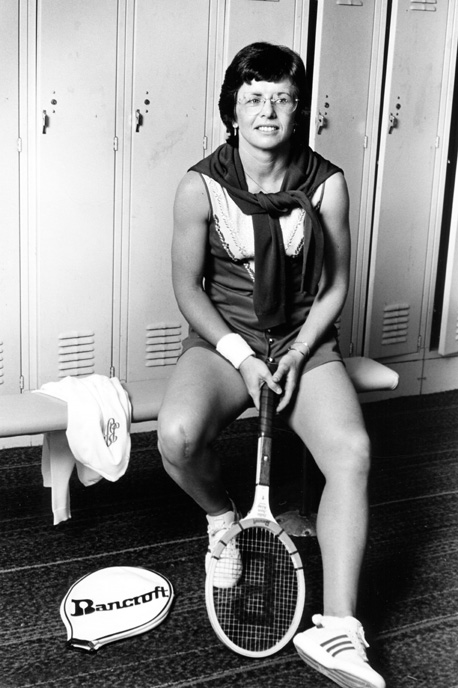Wimbledon is upon us and what better way to get into the spirit of the game than by looking back over the career of one of the champions of tennis, on and off the court.
Billie Jean Moffitt was born on November 22, 1943, in Long Beach, California. Her athletic prowess was no surprise: Her father, Bill, was offered a try-out for the National Basketball Association, her mother, Betty, was allegedly an excellent swimmer and her brother, Randy, would become a Major League Baseball pitcher. King began to play tennis aged 11 on the Long Beach public courts and just 4 years later she won the Southern California championship for her age bracket. Soon after she began her professional career, training with former women’s tennis champion Alice Marble, her goal to become number 1 in the world.
What followed was an incredible career: between 1961 and 1979, King won a record 20 Wimbledon titles, 13 United States titles, four French titles, and two Australian titles for a total of 39 Grand Slam titles. In 1966 she achieved her goal when she was ranked #1 in the world in women’s tennis, a title she received five more times over her career. In 1972, she won the U.S. Open, French Open, and Wimbledon to claim three Grand Slam titles in one year.
Off the court King fought hard for equality in sport, as she realised very early on that the standards for women were not the same as those for men. The biography on her website provides an anecdote that shows that King, and women like her, faced discrimination right from the start:
‘While participating in a tournament at the Los Angeles Tennis Club in 1955, Billie Jean was barred from a group picture of junior tennis players because she wore the tennis shorts her mother made her instead of the tennis dress traditionally worn by female athletes. She took this injustice and used it as fuel to power both her game and her future social advocacy.’
King was determined to ensure equal prize money for men and women’s games. Despite becoming the first woman athlete to earn over $100,000 in prize money in 1970, a year later, when she won the U.S. Open in 1972, she received $15,000 less than the men’s champion, Ilie Năstase. King then formed the Women’s Tennis Association, and in 1973 she was successful in her petition for equal prize money for men and women at the US Open. However it would take another 34 years for the other three major tennis tournaments to follow suit.
In 1973 King played the game that would define her career: tennis champion Bobby Riggs came out of retirement to challenge King to a match, baiting her by declaring women’s tennis to be inferior to men’s. King declined, and so Riggs played and beat Margaret Court, the current no.1 women’s player. After Courts defeat, which was dubbed the ‘Mother’s Day Massacre’, King saw no option but to play Riggs and set the record straight for women’s tennis.
On the 20th September 1973 over 90 million people watched King beat Riggs 6-4, 6-3, 6-3 at the Houston Astrodome. Afterwards she said: ‘I thought it would set us back 50 years if I didn’t win that match,’ she said. ‘It would ruin the women’s tour and affect all women’s self-esteem!’ King also shared that during the match Riggs said to her ‘I really underestimated you’. King and Riggs remained friends until his death in 1995.
In 1981 King’s former assistant, Marilyn Barnett, filed a lawsuit against King asserting that she was entitled to share in King’s assets. During the case Barnett claimed that she and King has been in a romantic relationship for seven years. King initially denied this; homosexuality had only been decriminalised in 1967 and still carried a stigma. When King admitted to the relationship she lost all of her endorsement deals, but became an advocate for the LGBTQ community. In 1987 she and her husband, Larry King, divorced and she began a relationship with fellow tennis player Ilana Kloss, who she lives with in New York. King, Ilana and Larry and his family remain close friends.
She was elected to the International Tennis Hall of Fame in 1987, and in 2006 became the first woman to have a major sports venue named in her honour (The USTA Billie Jean King National Tennis Center). On the 12th August 2009, she was awarded the Presidential Medal of Freedom for her advocacy work on behalf of women and the LGBTQ community.

